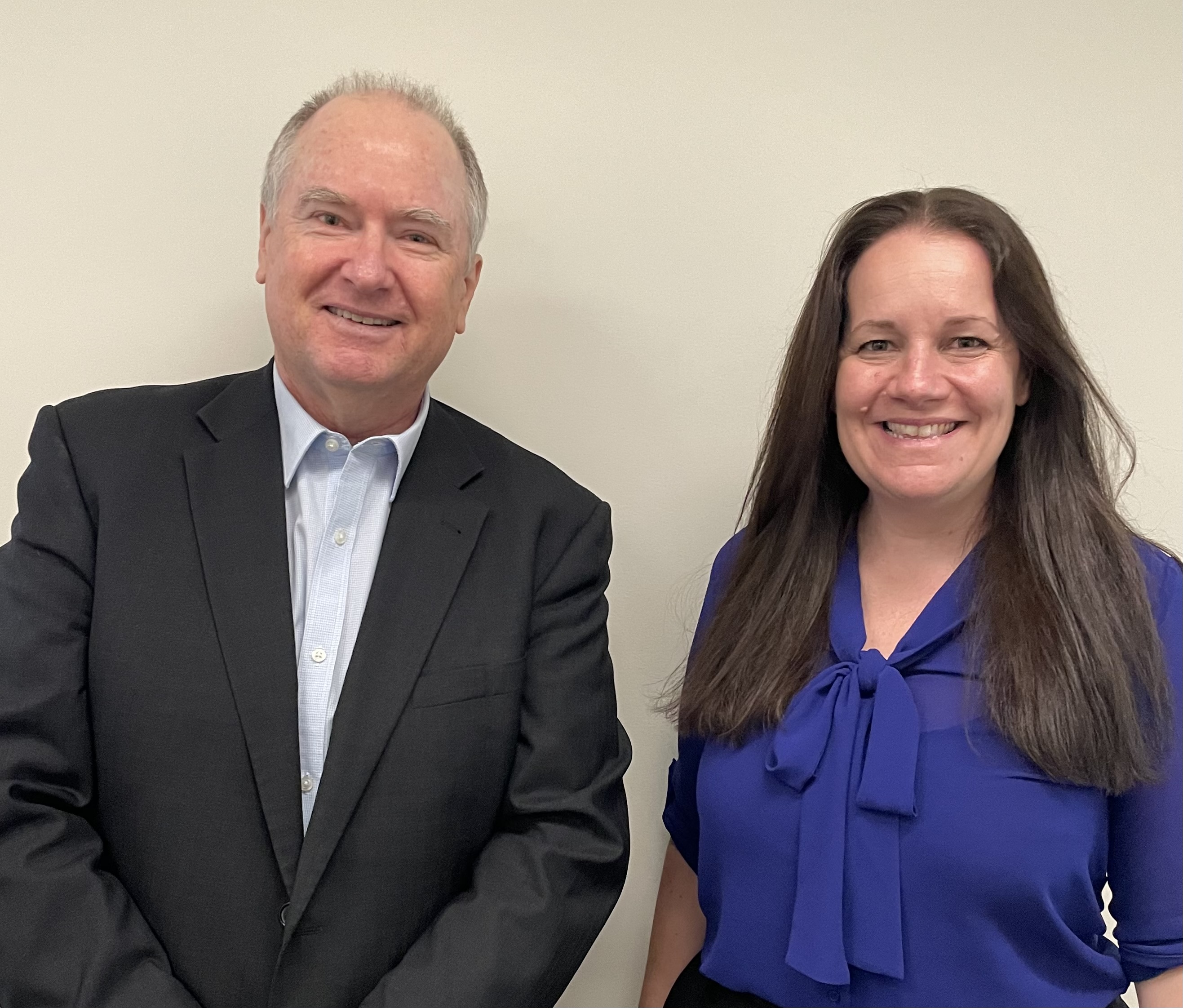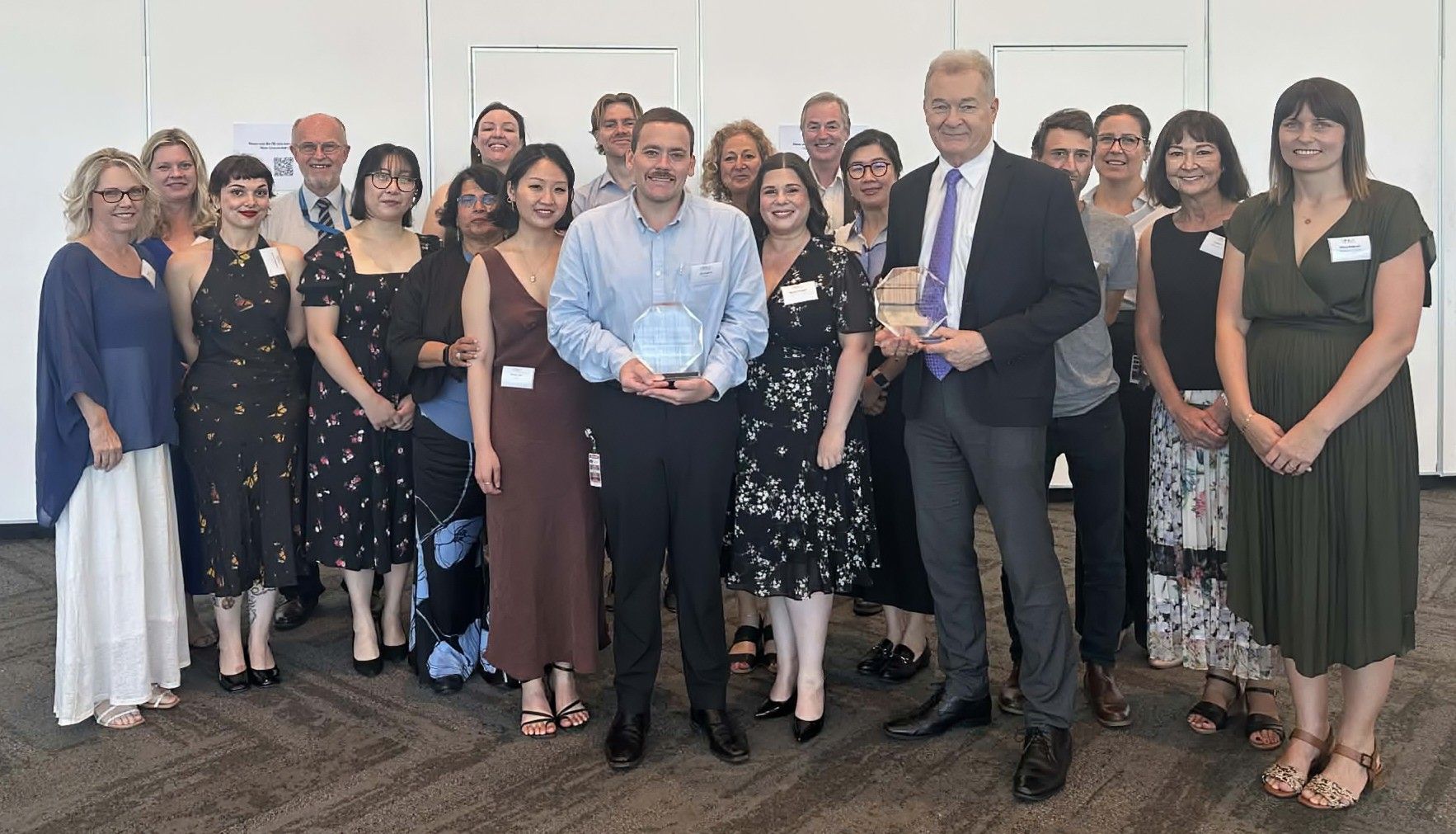Latest News
Read more news
-
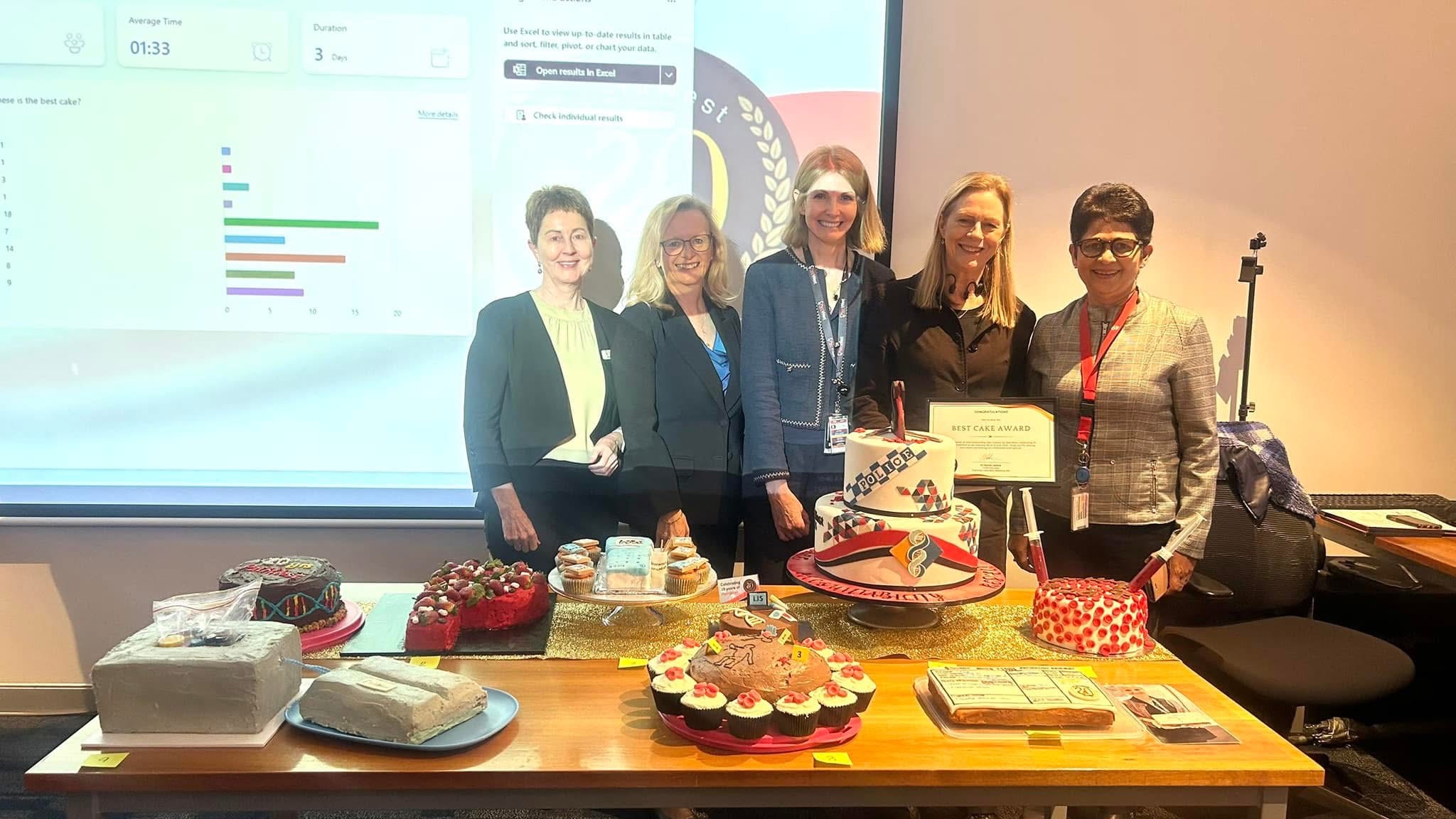 Celebrating 20 years of PathWest 01 August 2025 Last month, we marked two decades of PathWest with special morning teas and site displays at our Queen Elizabeth II (QEII) and Fiona Stanley Hospital (FSH) sites. The morning tea at QEII was attended by the Department of Health Director General, Dr Shirley Bowen, our Chief Executive Dr Narelle Hadlow, Board Chair Angie Paskevicius, and staff from across PathWest. As part of the celebrations, we looked back at key milestones from our 20-year journey. We also held PathWest’s BakeWest cake competition, with live voting at the morning teas. PathWest BakeWest winners Best Cake at QEII Kay Stone, Forensic Pathology The winning cake beautifully represented our evolution from the PathCentre to PathWest – honouring our past and celebrating our future. Best Cake at FSH Abi Hague, FSH Specimen Collection The winning cake featured the message ‘PathWest starts with phlebotomy&...
Celebrating 20 years of PathWest 01 August 2025 Last month, we marked two decades of PathWest with special morning teas and site displays at our Queen Elizabeth II (QEII) and Fiona Stanley Hospital (FSH) sites. The morning tea at QEII was attended by the Department of Health Director General, Dr Shirley Bowen, our Chief Executive Dr Narelle Hadlow, Board Chair Angie Paskevicius, and staff from across PathWest. As part of the celebrations, we looked back at key milestones from our 20-year journey. We also held PathWest’s BakeWest cake competition, with live voting at the morning teas. PathWest BakeWest winners Best Cake at QEII Kay Stone, Forensic Pathology The winning cake beautifully represented our evolution from the PathCentre to PathWest – honouring our past and celebrating our future. Best Cake at FSH Abi Hague, FSH Specimen Collection The winning cake featured the message ‘PathWest starts with phlebotomy&... -
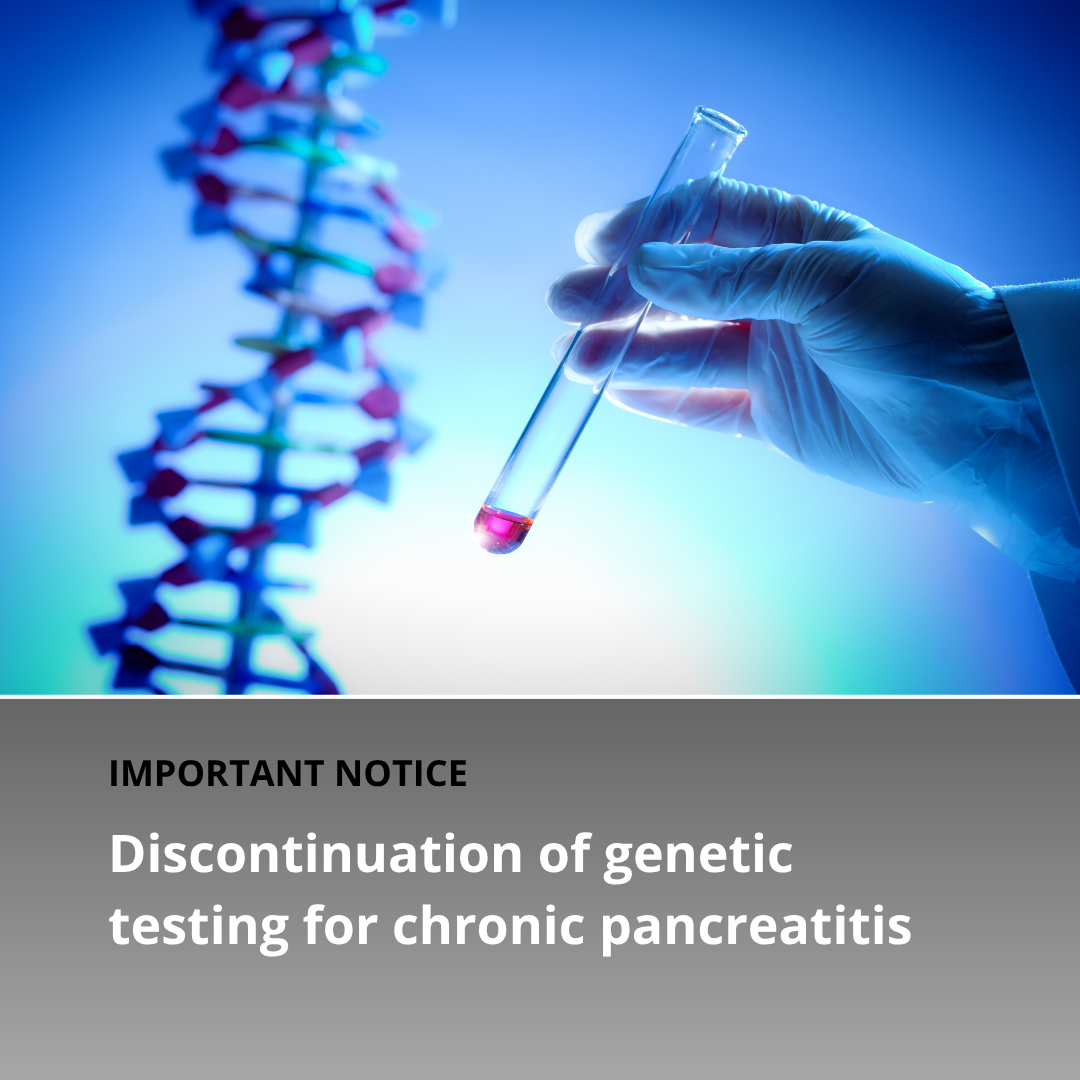 Discontinuation of Genetic Testing for Chronic Idiopathic Pancreatitis 30 May 2025 Following a recent review, PathWest will discontinue genetic testing for chronic idiopathic pancreatitis (CIP) from 03 June 2025. This decision follows a clinical and operational review which identified: CIP testing is not supported by Medicare. Current CIP testing has limited clinical utility in comparison to the international benchmark: Low diagnostic yield of less than 10% compared to 20 to 30% (PMID: 39172977). Broader and more comprehensive hereditary pancreatitis testing is available internationally through other providers. These include: Canterbury Health Laboratories (NZ) – PRSS1, SPINK1, CFTR, CELA3B ARUP Laboratories (USA) – CFTR, CTRC, PRSS1, SPINK1 Prevention Genetics (USA) – CASR, CFTR, CPA1, CTRC, PRSS1, SPINK1, TRPV6 Blueprint Genetics (USA) – APOA5, APOC2, CFTR, CPA1, CTRC, GPIHBP1, PRSS1, SPINK1, UBR1 We ap...
Discontinuation of Genetic Testing for Chronic Idiopathic Pancreatitis 30 May 2025 Following a recent review, PathWest will discontinue genetic testing for chronic idiopathic pancreatitis (CIP) from 03 June 2025. This decision follows a clinical and operational review which identified: CIP testing is not supported by Medicare. Current CIP testing has limited clinical utility in comparison to the international benchmark: Low diagnostic yield of less than 10% compared to 20 to 30% (PMID: 39172977). Broader and more comprehensive hereditary pancreatitis testing is available internationally through other providers. These include: Canterbury Health Laboratories (NZ) – PRSS1, SPINK1, CFTR, CELA3B ARUP Laboratories (USA) – CFTR, CTRC, PRSS1, SPINK1 Prevention Genetics (USA) – CASR, CFTR, CPA1, CTRC, PRSS1, SPINK1, TRPV6 Blueprint Genetics (USA) – APOA5, APOC2, CFTR, CPA1, CTRC, GPIHBP1, PRSS1, SPINK1, UBR1 We ap... -
PathWest makes Australia’s top companies’ list for the midsize category 17 April 2025 PathWest is honoured to be named on LinkedIn’s 2025 Top Companies list in Australia for the midsize category – a prestigious recognition celebrating leading workplaces with fewer than 5,000 employees where professionals can thrive and grow their careers. PathWest is the only Western Australian entity to be named for 2025. "This recognition reflects our ongoing commitment to fostering a positive, inclusive, and empowering workplace where every team member feels supported and inspired to reach their full potential", said Dr Narelle Hadlow, PathWest Chief Executive. "Thank you to our incredible team for improving the health, wellbeing, and safety of our communities every day – this achievement is yours." Learn more
-
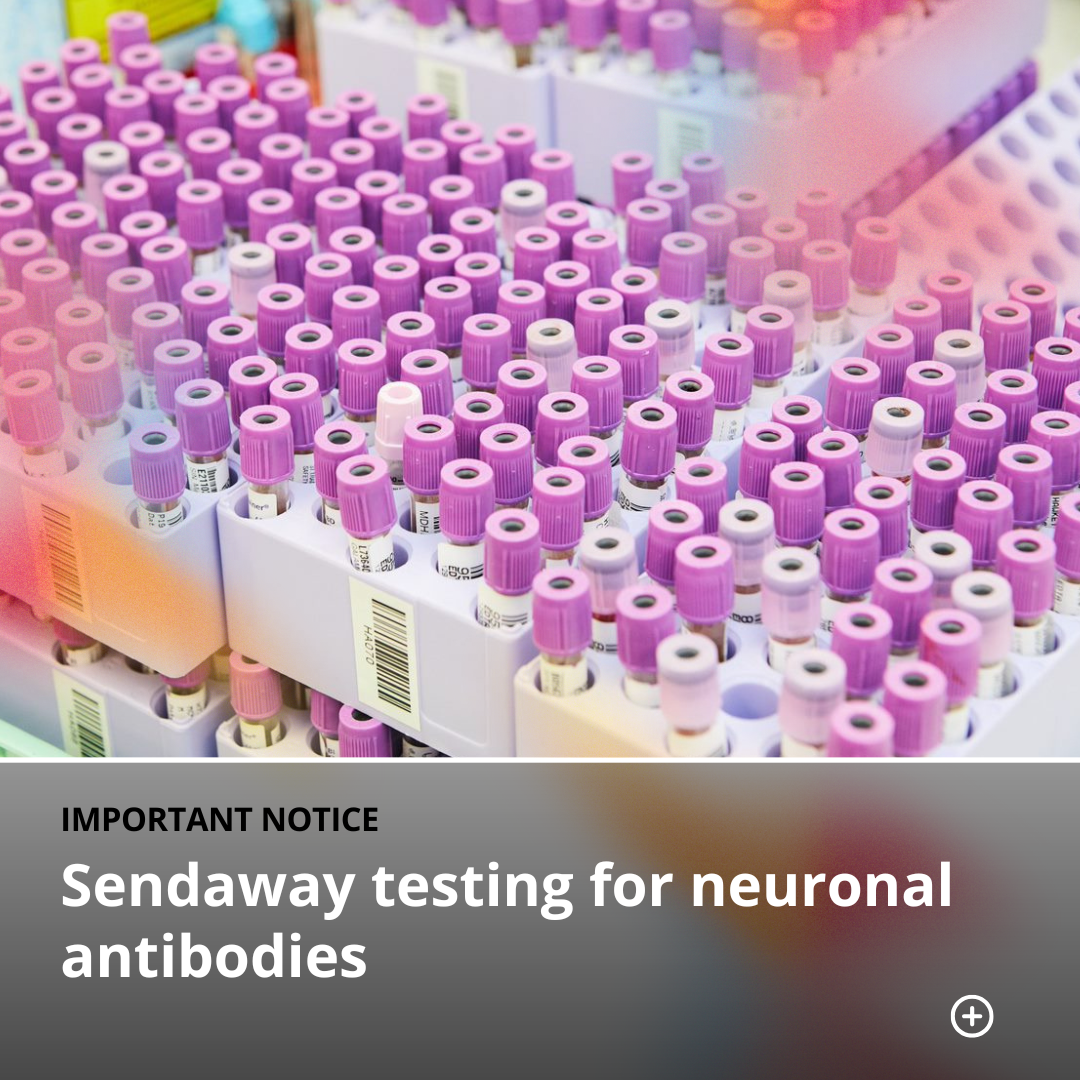 Sendaway Testing for Neuronal Antibodies 13 March 2025 PathWest wishes to advise that the process for send away testing for neuronal antibodies require discussion with, and approval by, an immunopathologist. If the testing is thought to be clinically appropriate, and where relevant first tier testing is negative, testing will be organised and the costs covered by PathWest laboratory. For testing that is deemed to be required, but is discordant with the current accepted clinical syndrome, the cost will need to be covered by the requesting department. For all requests that are received, without prior discussion and approval, the sample will not be tested and will be stored. Requests from other private pathology services will not be sent away and any samples received will be returned. If you have any questions or need additional information/assistance, please contact the PathWest Immunology Laboratory and an immunopathologi...
Sendaway Testing for Neuronal Antibodies 13 March 2025 PathWest wishes to advise that the process for send away testing for neuronal antibodies require discussion with, and approval by, an immunopathologist. If the testing is thought to be clinically appropriate, and where relevant first tier testing is negative, testing will be organised and the costs covered by PathWest laboratory. For testing that is deemed to be required, but is discordant with the current accepted clinical syndrome, the cost will need to be covered by the requesting department. For all requests that are received, without prior discussion and approval, the sample will not be tested and will be stored. Requests from other private pathology services will not be sent away and any samples received will be returned. If you have any questions or need additional information/assistance, please contact the PathWest Immunology Laboratory and an immunopathologi... -
 2024 Festive Season Opening Hours 17 December 2024 PathWest collection centres will be closed on the following dates: 2024 Wednesday 25 December Thursday 26 December Sunday 29 December. 2025 Wednesday 1 January. Collection centres that are normally closed on weekends will be closed as usual on Saturday 28 December 2024. Find your nearest collection centre. PathWest wishes you a safe and happy festive season!
2024 Festive Season Opening Hours 17 December 2024 PathWest collection centres will be closed on the following dates: 2024 Wednesday 25 December Thursday 26 December Sunday 29 December. 2025 Wednesday 1 January. Collection centres that are normally closed on weekends will be closed as usual on Saturday 28 December 2024. Find your nearest collection centre. PathWest wishes you a safe and happy festive season!
Last Updated:
20/05/2025



